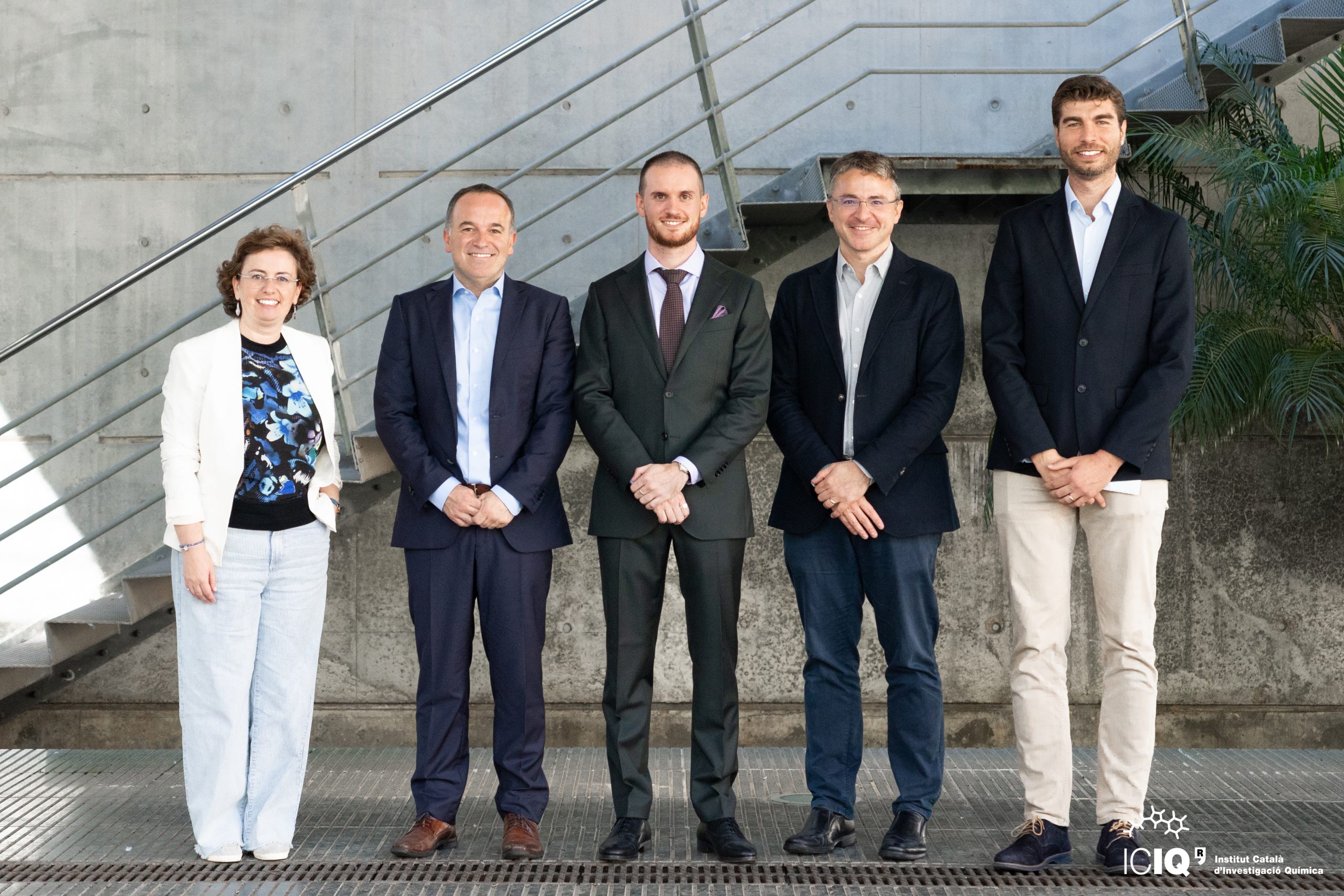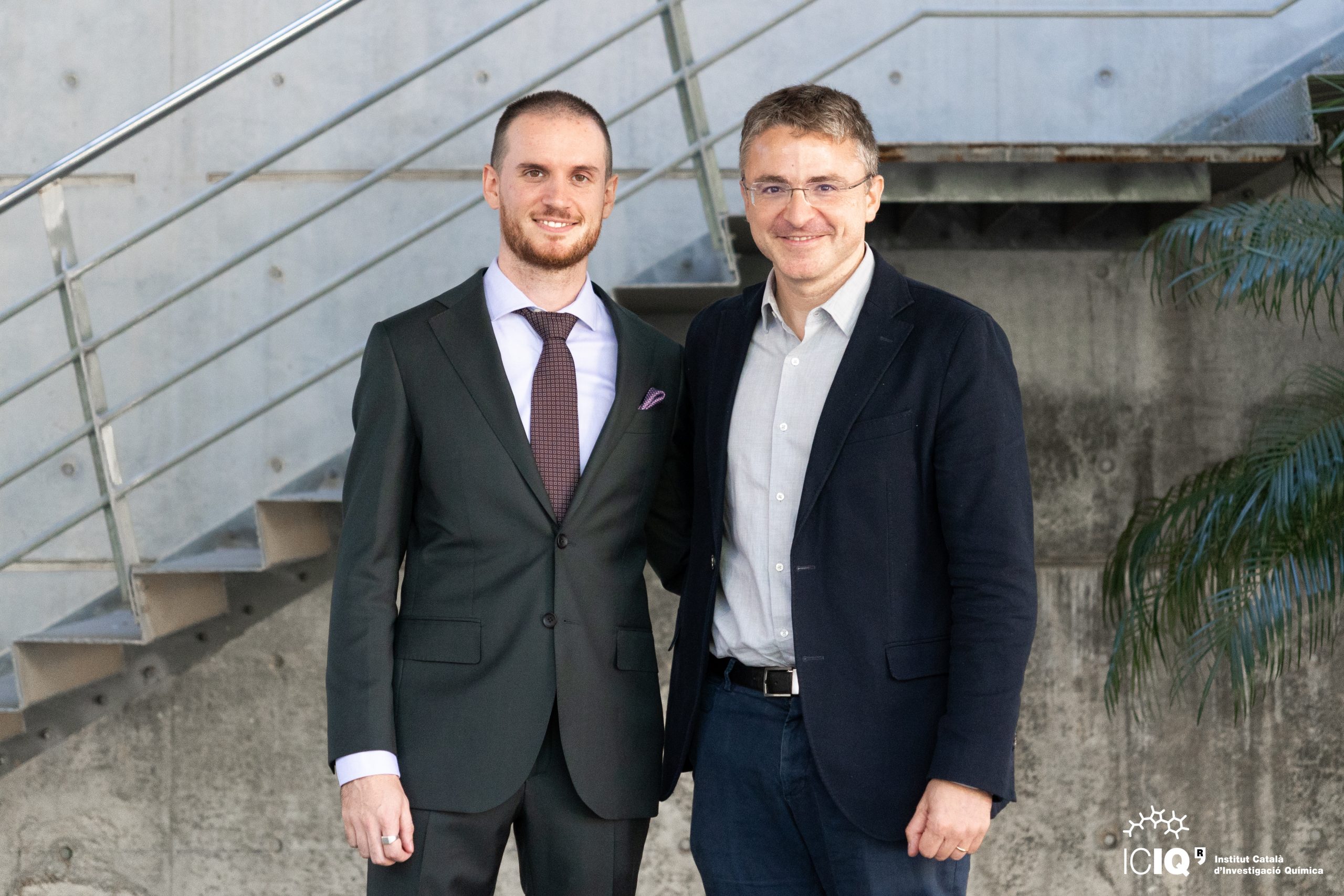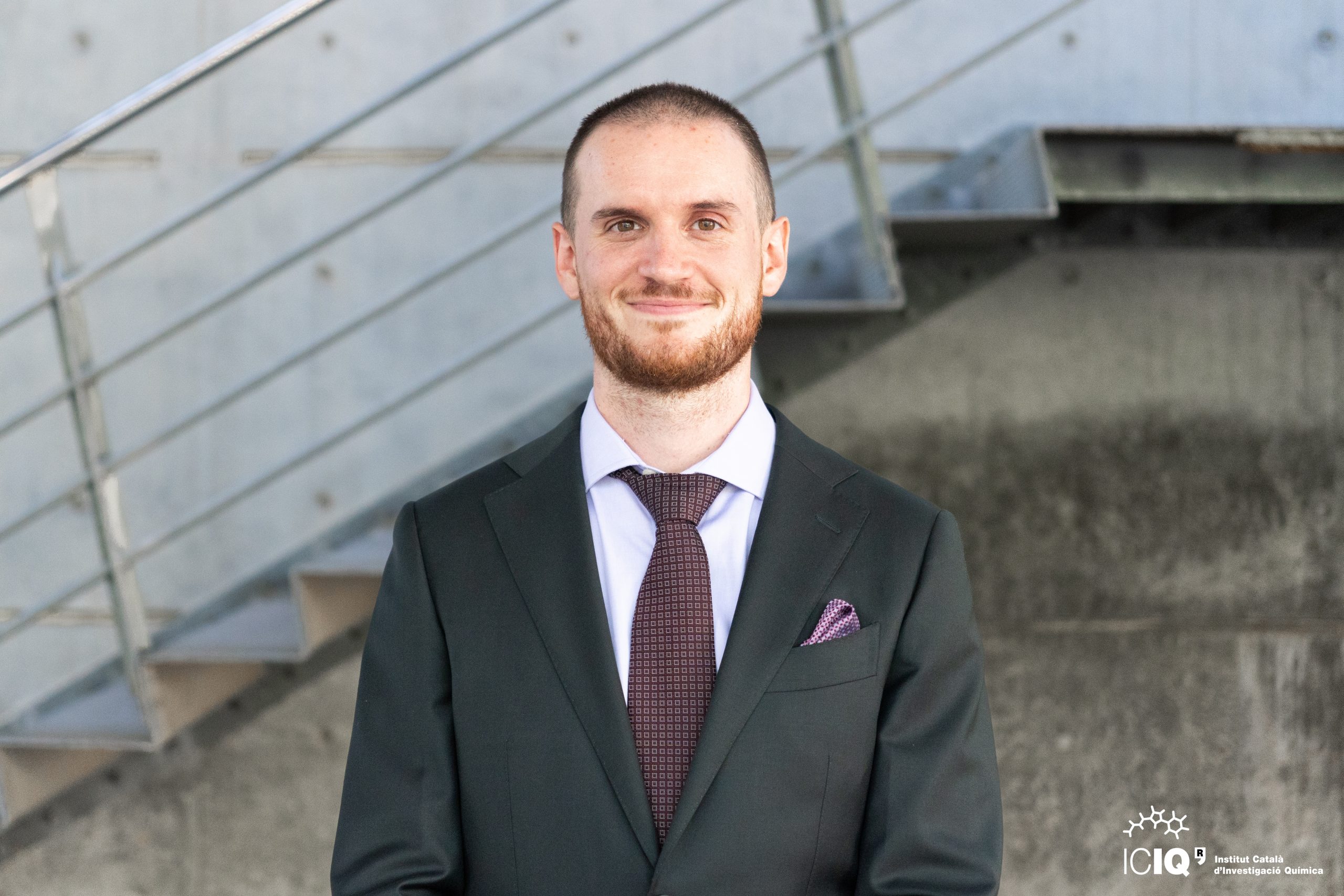Félicitations, Dr. Lyonnet!
Julien Lyonnet, a PhD student under the supervision of Prof. Ruben Martin, has successfully defended his PhD thesis entitled “Carboxylative Methodologies via Photoredox Catalysis” on Thursday, September 26th.
The members of the evaluation committee were Prof. Dr. Arkaitz Correa (Universidad Pais Vasco), Prof. Dr. Manuel Nappi (Universidade de Santiago de Compostela) and Prof. Dr. Ana Belén Cuenca (IQS).

Julien Lyonnet is a French man, born in Geneva and raised in the surrounding areas. He obtained his Bachelor’s degree in Chemistry from the University of Geneva and then decided to pursue his Master’s abroad, graduating from Uppsala University in Sweden. In 2020, upon completing his Master’s, he moved to Tarragona to begin his PhD studies. Outside of the lab, he enjoys spending time in the mountains, engaging in activities such as rock climbing, hiking, and skiing during the winter.
For the first three years of his PhD, Julien was funded by an ITN programme called CO2PERATE, supported by the European Union (grant No. 859910).
Why did you become a scientist?
Every day, we live on a planet ruled by physical, chemical, and biological processes. Since my childhood, I always wanted to understand the intricacies of this world we live in. Following a scientific path was therefore rather natural.
What do you want to achieve as a scientist?
Since I became a chemist, I want to work in the pharmaceutical world, doing my best to help develop new medicines.
What is your thesis about?
My thesis is about using CO2 as a source of carbon to make carboxylic acids, specifically using visible light as an energy source.
What applications can your thesis have in the future?
The potential applications from my thesis are for synthetic chemists in the industry to make carboxylic acids from an available and sustainable carbon source.
The thing I like most about my thesis is…
The fact that one topic can make you work on somewhat different projects.
From the lessons learned at ICIQ, which one do you value the most?
The ability to adapt to new environments and to unfamiliar chemistry.
What will you miss the most from ICIQ?
The people – I have made great friends and met many amazing people overall.
What do you wish you had known at the beginning of your PhD?
That the stereotype of the emotional rollercoaster is true; most students face difficult times, and being resilient is important.
What advice do you have for someone who’s starting their PhD now?
It’s important to try to dissociate emotions and results as much as possible. To succeed, we often have to fail a lot. Bad results can be demotivating, but they are part of the process. When you’re too affected by negative results, try switching tasks for a while to stay motivated.
Have you ever been emotional over an experiment/simulation? Why?
Definitely. A lot of my chemistry didn’t work for a long time. It’s hard to stay motivated in such periods, but resilience is key, along with having supportive people around.
Where are you going next?
I will be working at a CRO company in Montréal (Canada) called Paraza Pharma as a medicinal chemist.
Chemistry/Science is fun because…
We constantly learn about our world and improve it little by little.
What is your favourite molecule?
My favourite molecule is Rubipy, a ruthenium-based dye with a beautiful color. No picture can truly capture its beauty.
If you were a piece of lab equipment, what would you be?
I would be a fumehood because that’s where most of the science is done, but also where the best discussions happen.


Related news

Let's create a brighter future
Join our team to work with renowned researchers, tackle groundbreaking
projects and contribute to meaningful scientific advancements






 20-12-2024
20-12-2024 


















